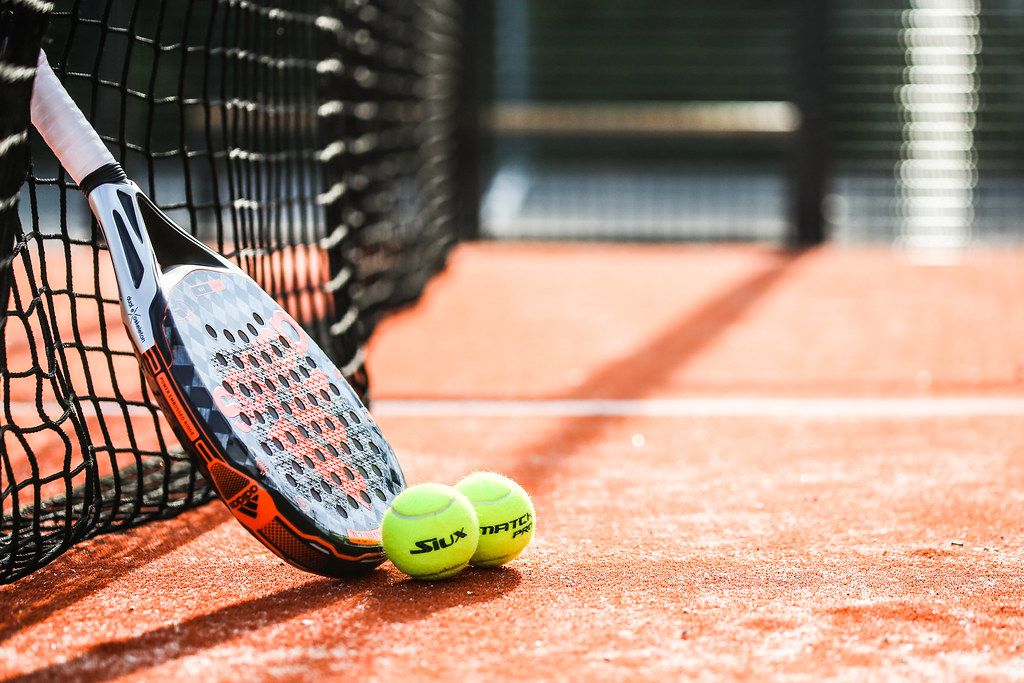PADEL
The UK's fastest growing racket sport
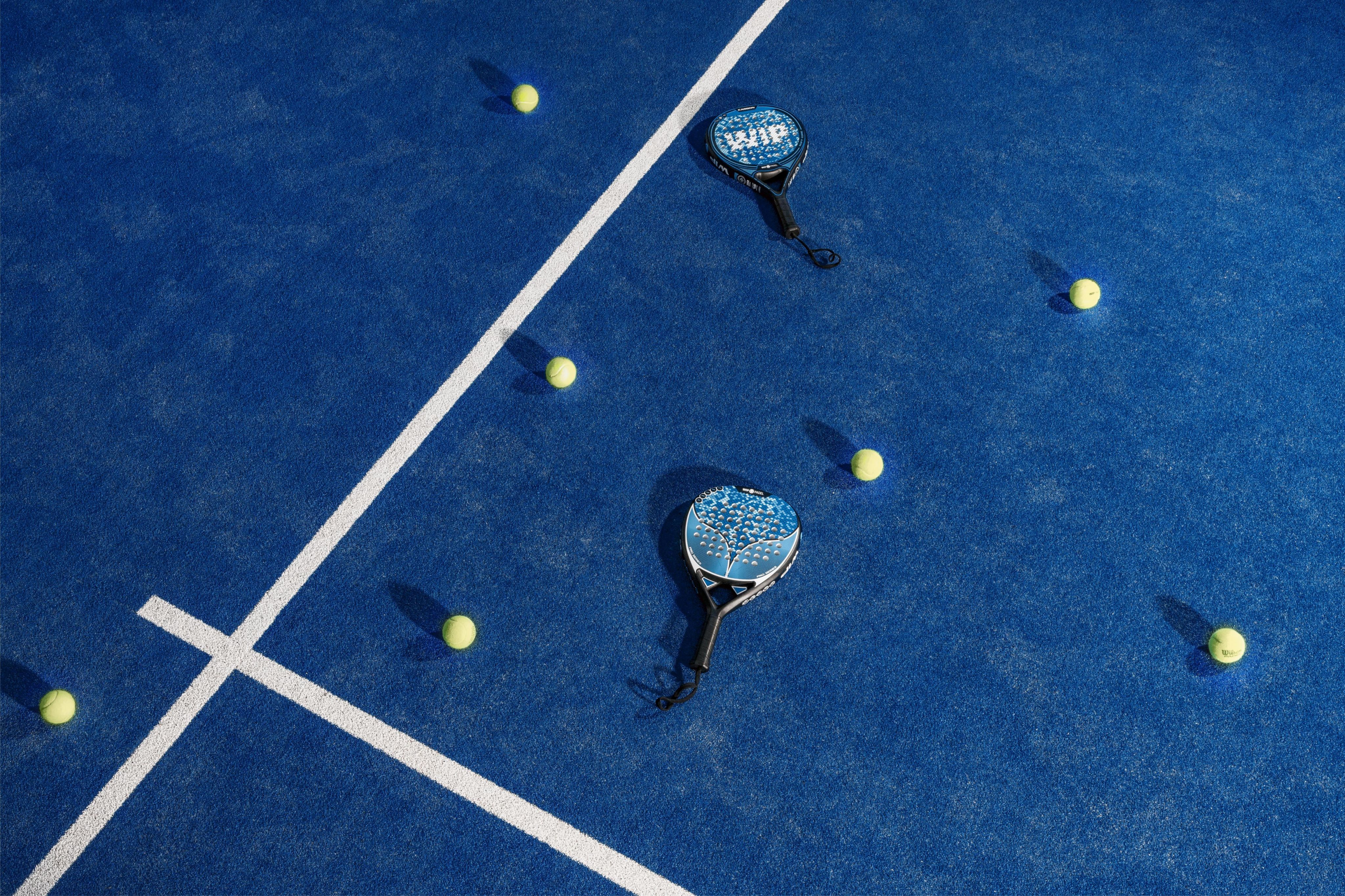
Padel is one of the UK’s fastest growing sports.
It is often described as a mix between tennis and squash and is played on an enclosed court roughly 25 percent smaller than a normal tennis court.
Padel is fast-paced and the ball can be played off the walls like in squash.
This leads to long, exciting rallies and even in some professional competitions the possibility of running outside of the court to get the ball back in play!
The speed of the game makes singles play difficult and hence most padel matches are played as doubles.
However, this means padel is extremely sociable and as the sport has spread across the world, the expectation has developed that you not only play, but you stay for a drink afterwards.
The Padel Boom
Padel is currently booming across Latin America and southern Europe.
In Spain there are 4 million padel players and padel is now the country’s second most popular sport, behind only football.
Although late to the game, the UK has recently witnessed a massive spike in interest in padel.
Vanessa Benedict, co-founder of MVP padel, a South West London based start-up that builds and operates padel clubs said: “It’s still very much in its infancy, but over the 2-3 years that we have been involved we have seen interest in the sport rocket.
“New clubs are opening all the time and courts are packed – it’s almost impossible to find a slot to play in London these days.”
She added: “There’s also been lots of press coverage and much of this has been driven by high-profile celebrity players getting into the game.
“Jurgen Klopp, David Beckham, Zlatan Ibrahimovic, Andy Murray to name just a few.”
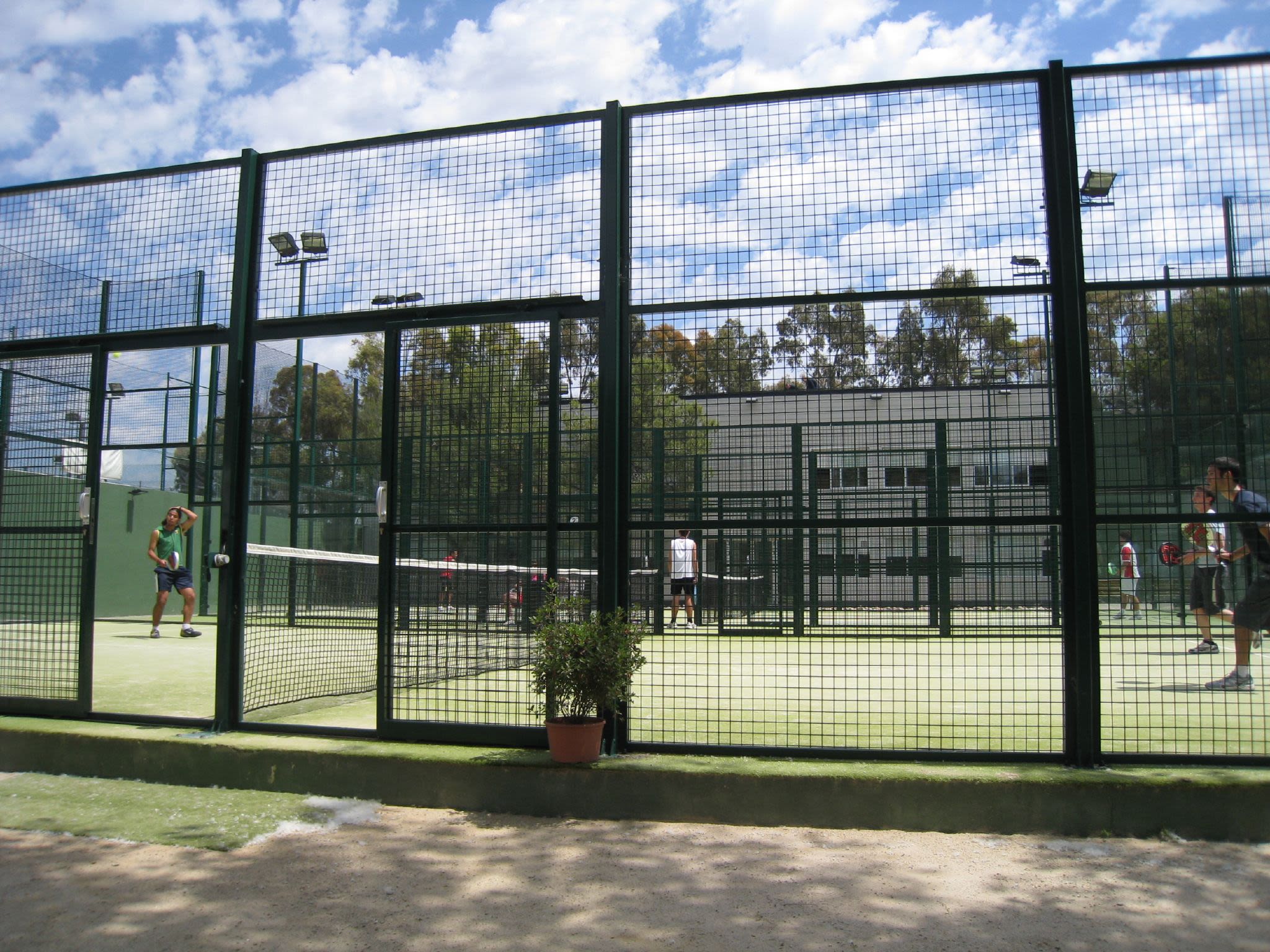
The number of padel courts has increased steadily across the UK over the past few years. There are currently 209 courts and this is up from 114 in October 2021.
Given the surge in interest, the Lawn Tennis Association (LTA), the sport’s governing body, project there will be 400 padel courts in the UK by the end of 2023.

How Padel Works
Padel is often described as an innovative form of tennis.
The scoring is the same and like in tennis a set is won when one of the pairs gets to six games.
However, the scoring system is the point where a lot of the similarities end.
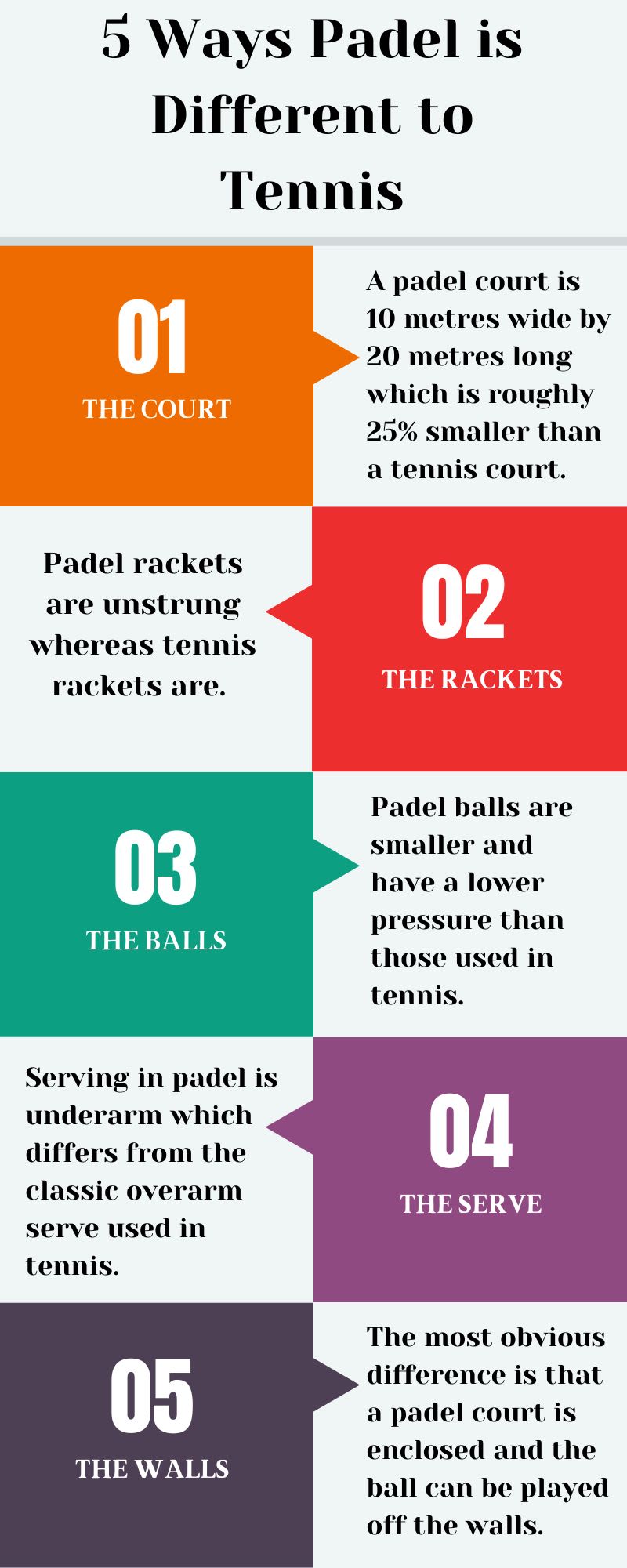
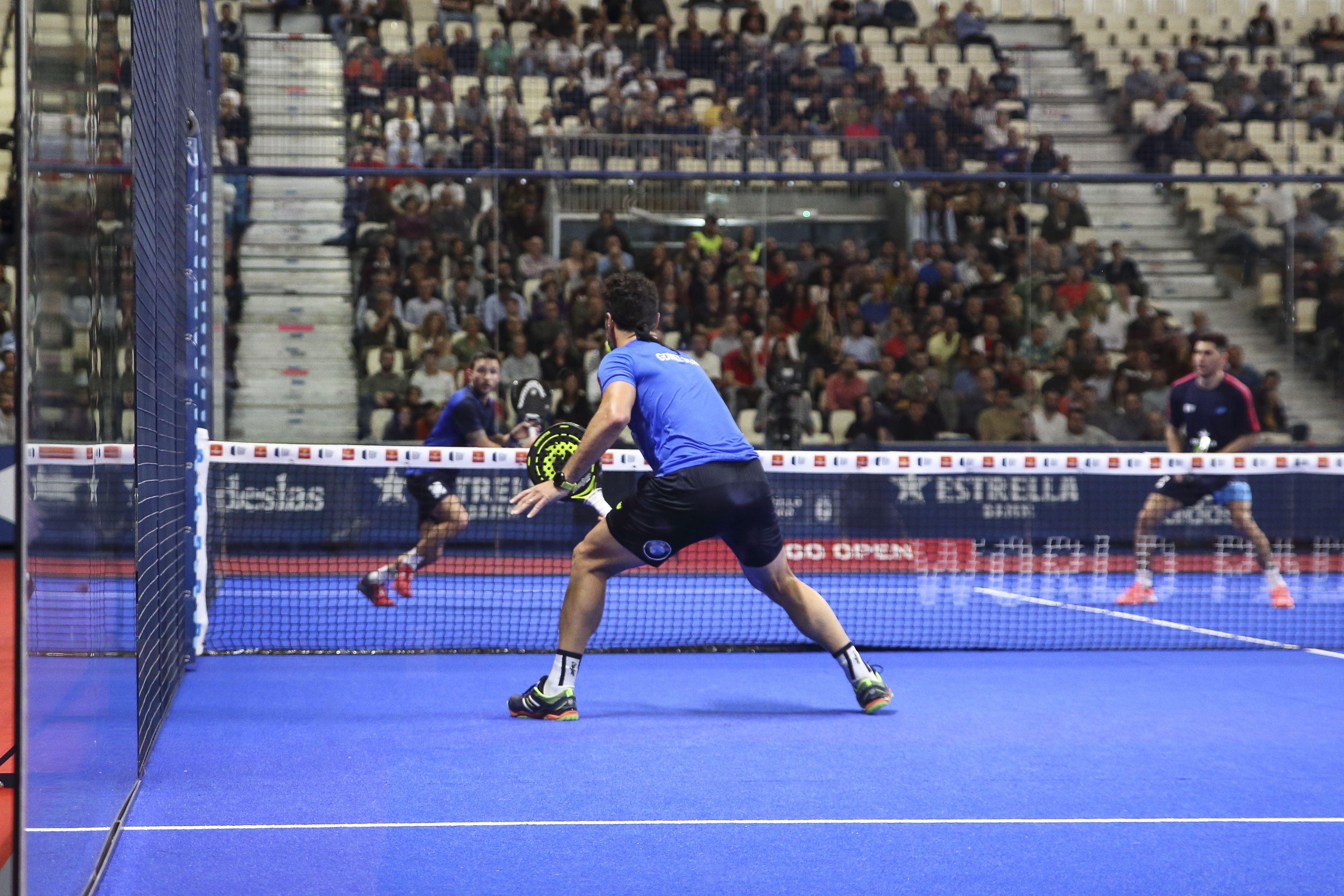
There are four ways to win a point in padel
- The opponents’ ball hits the net or another part of the court without having bounced in your side of the court.
- The ball bounces twice in the opponents’ side of the court.
- The ball hits an opponent’s body directly.
- Accidentally or voluntarily a player touches the ball more than once with the racket.
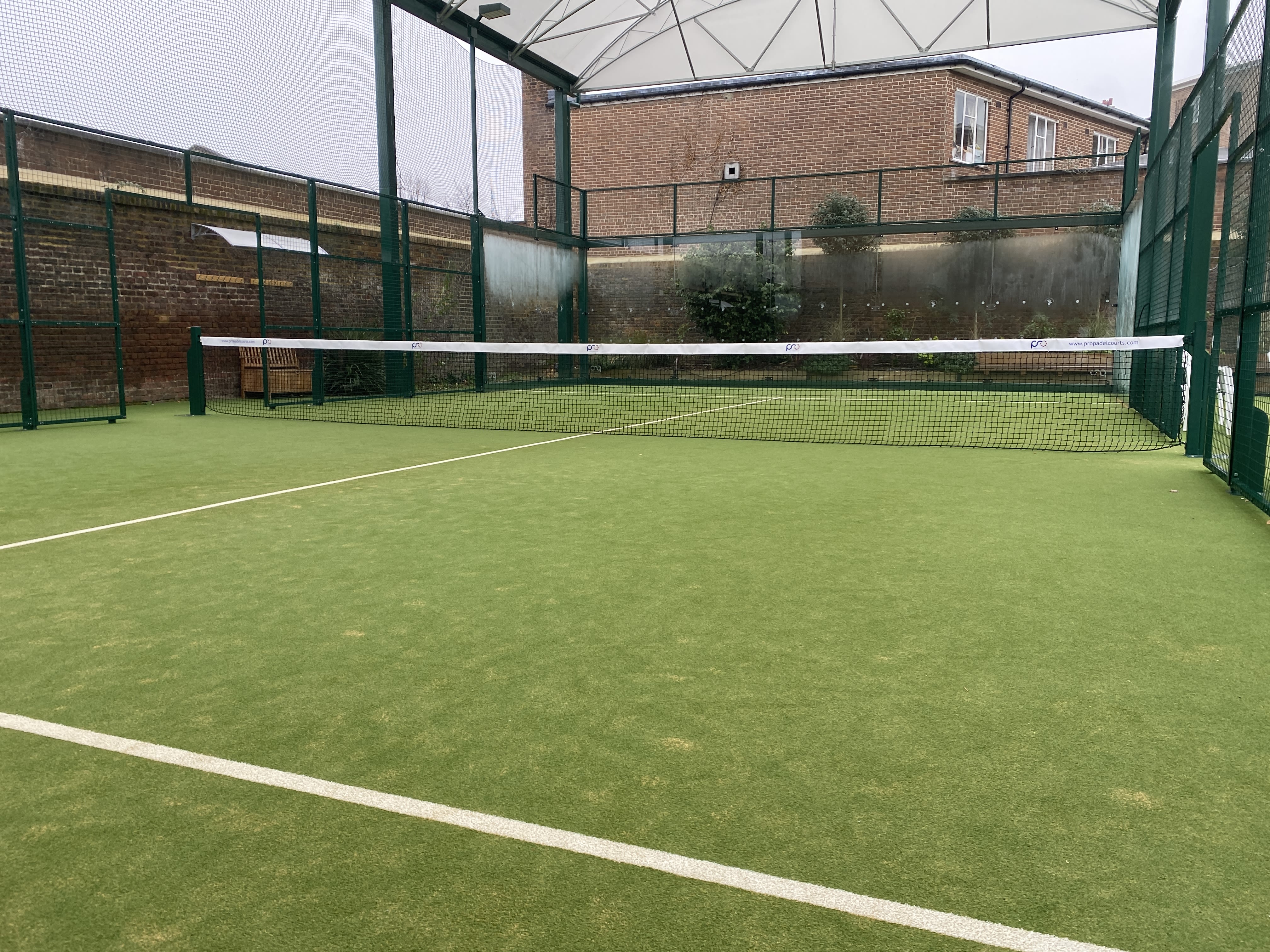
The History of Padel
Padel was first invented in Mexico in 1969 when businessman Enrique Corcuera set up the first court in his holiday home in Acapulco.
He surrounded his court on all sides with walls and a four-metre-high fence to prevent the balls from going onto his neighbour’s land.
Corcuera named his new invention ‘Paddle Corcuera’.
However, the roots of the sport go back further than that.
In the early 20th century, ‘platform tennis’ became popular in the United States and in Victorian Britain, passengers played a similar game with tennis rackets on cruise ships.
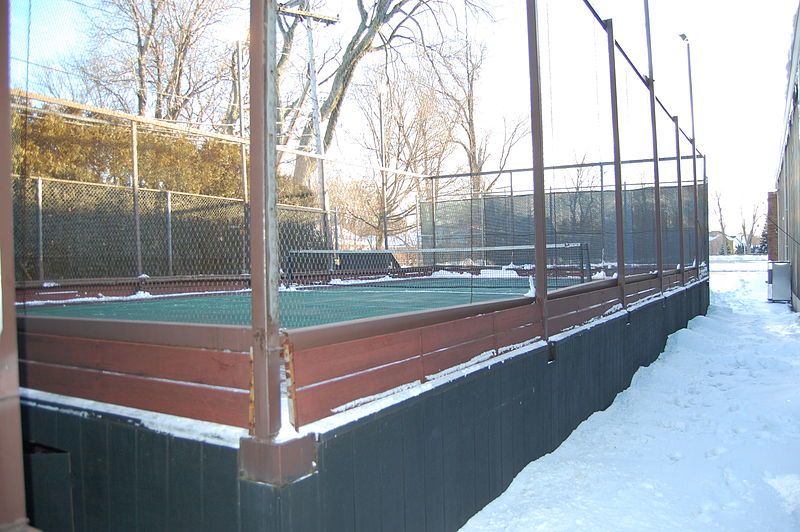
A platform tennis court. Image credit: Arbitrarily0 via Wikimedia Commons under license CC BY-SA 3.0
A platform tennis court. Image credit: Arbitrarily0 via Wikimedia Commons under license CC BY-SA 3.0
It was not until 1974 that padel began to spread outside Mexico and grow exponentially.
Alfonso de Hohenlohe, a Spanish entrepreneur and friend of Corcuera enjoyed padel so much that he decided to build two courts at the Marbella Club on the Costa del Sol.
The International Padel Federation was then formed in 1991 and this led to the establishment of the first international tournaments.
In 1992 the first world championships were held jointly by the cities of Madrid and Seville and just after the turn of the millennium the first professional world tour, the Padel Pro Tour was created.
This is now known as the World Padel Tour.

Padel in the UK
Padel in the UK has started to take off and there are now courts dotted around the UK..
However, this was not always the case.
David Garrett opened one of the first padel courts in the UK in August 2015 after first coming across the game in Spain.
He said: “In Spain, 20 years ago I saw this game, tried it and thought wow this is fantastic.
“However, we came back to the UK and there was nowhere to play.
“I tried to build a court at my local squash club but it didn’t work so in the end I just thought I don’t care I’ll just build a court and run it myself to try and get my money back.”
Weybridge Padel Club now has 180 members and they had to close membership before the pandemic to protect the booking sheet.
Garrett explained that one of the reasons why the club has been so successful is that you don't have to come from a rackets sports background to enjoy padel and, in fact, the apparent simple nature of the sport is what makes it so appealing.
"It's easy to pick up but boy does it get interesting once you get the hang of it"
"I defy any racket sport to provide more entertainment"
Garrett added: "We have basically made the country padel aware and it really has got momentum now.
"Everyone sees it as such a fun game, which it is, and people are saying that we need a court at our club."
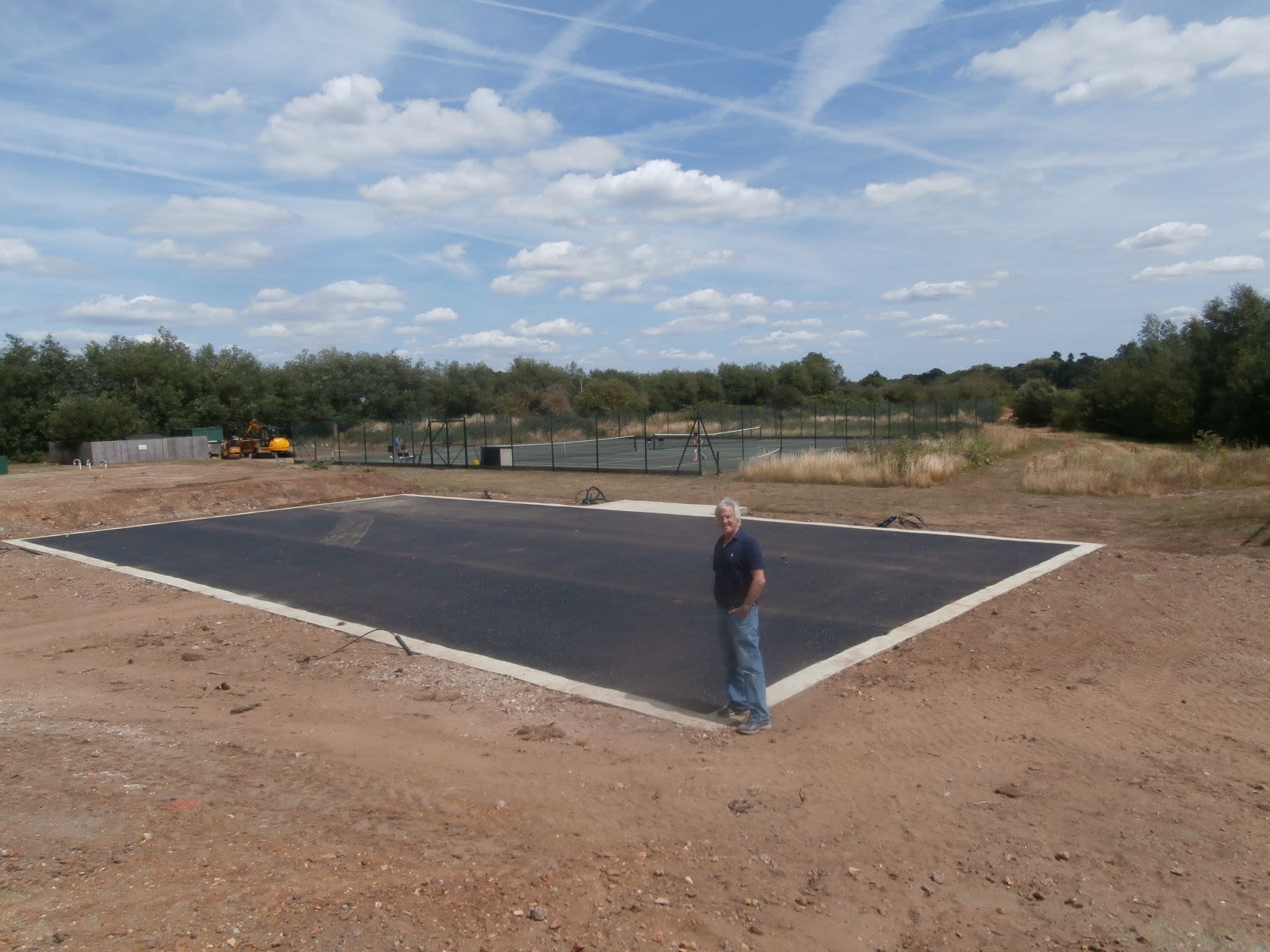
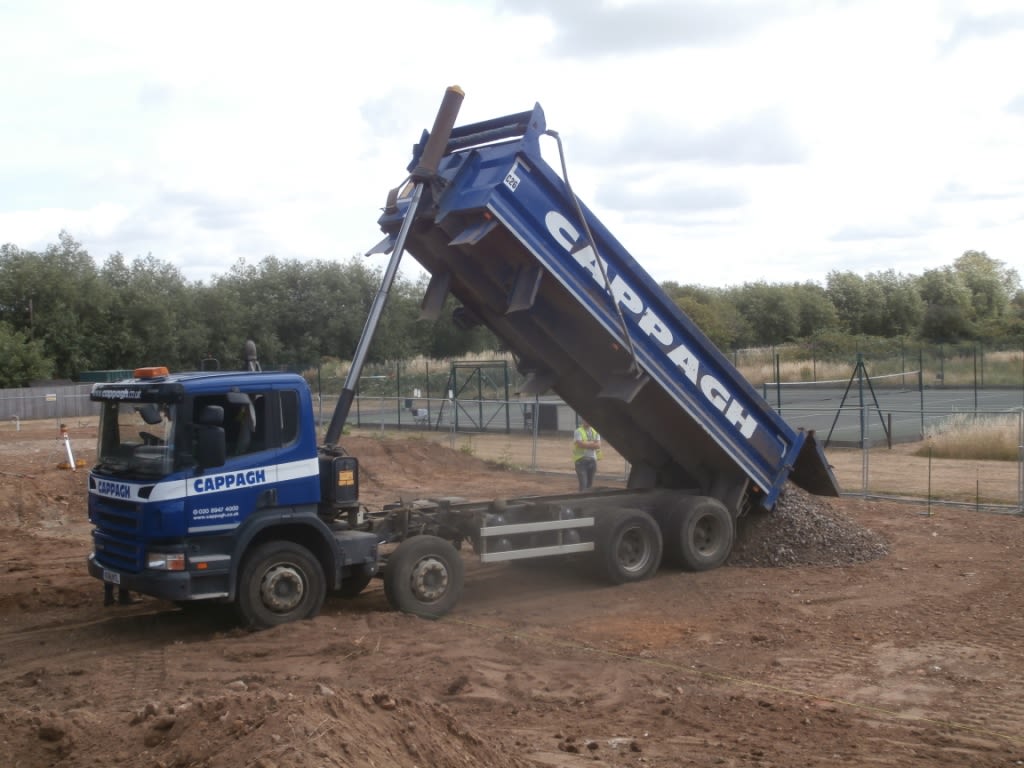
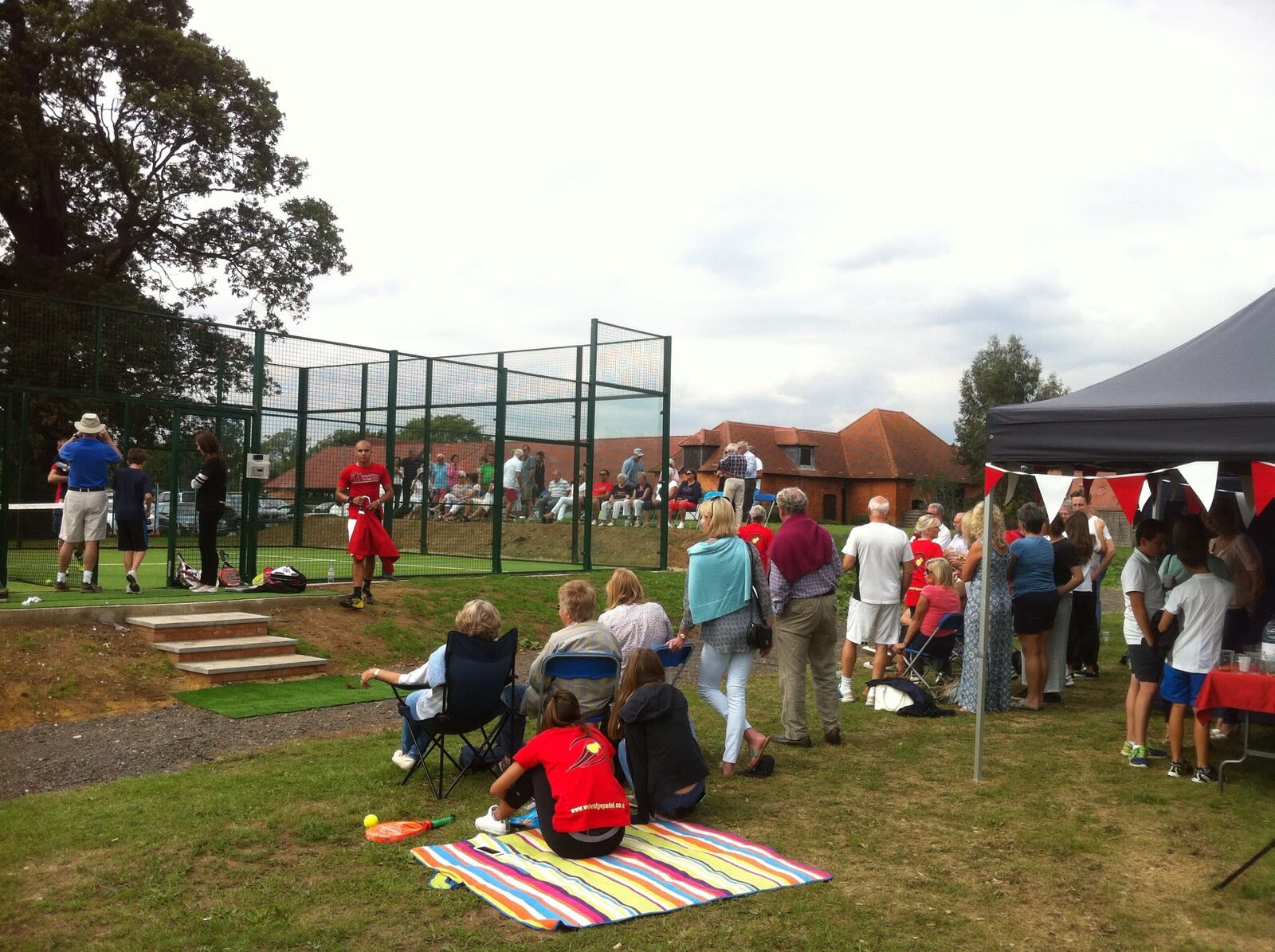
Despite the spike in interest, padel has not spread evenly across the UK and it is the regions of London and the East that have seen the fastest rate of development.
There are currently 23 padel venues in London which is more than in the whole of the Midlands and the North combined.
Andrew Lewandowski, general manager for Middlesex tennis, explained that in London there is a huge scope for padel due to the cosmopolitan nature of the capital.
Andrew Lewandowski explains what Middlesex are doing to promote padel
Andrew Lewandowski explains what Middlesex are doing to promote padel
He added: "We as a county are very much working with the LTA to get padel on the map.
"What we’ve done so far is that we have created a dedicated webpage which gives information about the sport and promotes events that are on."
To find out more about padel in the London area you can access the homepage here:
Padel is nevertheless starting to take off in other areas.
Oxfordshire recently opened their first padel court in the county at Oxford Sports Lawn Tennis Club in partnership with MVP Padel.
John Szulc, the padel ambassador for Oxfordshire, said he hopes this opportunity will encourage people of all ages to take up padel for the first time in the area.
John Szulc discusses the opening of the first padel court in Oxfordshire
John Szulc discusses the opening of the first padel court in Oxfordshire
"We thought it was a good idea, one to generate money for the club and two to expand padel in the UK"
Oxford Sports celebrates the opening of the first padel court in Oxfordshire
Padel as a Professional Sport
Padel now has an exciting professional scene which reflects the growth of the sport in the UK.
The 16th World Padel Championships were staged in Dubai in November and Team GB finished a respectable 14th.
The men’s team narrowly missed out on the quarter-finals after a tight 2-1 loss to the Netherlands.
However John Leach’s side clocked up wins over Egypt, Qatar and hosts UAE over the course of the championships.
The LTA now also runs the Padel National Tour which provides a circuit of tournaments designed to give up and coming players the opportunity to gain experience in their quest to become professional padel players.
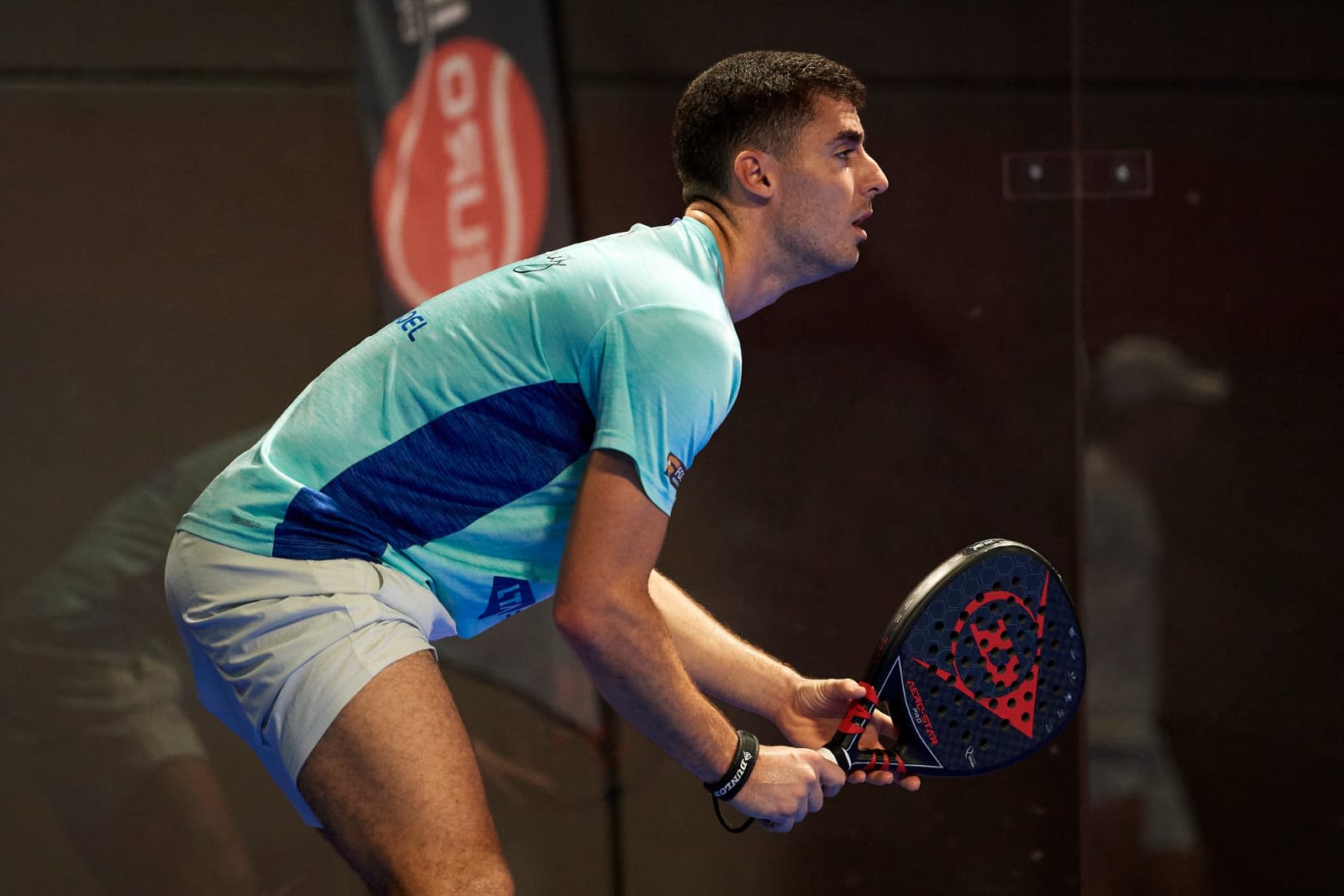
Image credit: Christian Medina Murphy
Image credit: Christian Medina Murphy
"It's going to blow up"
"Everyone who starts playing the sport, they love it."
"It's so social, you can play with all your family, all your friends"
Hansie Ruddick
Hansie Ruddick plays for the GB women's team but she discovered padel in Madrid.
She explained that she first got into the sport because one day a friend needed a fourth player and asked her along as they knew she used to play tennis.
Ruddick said: “I had no idea what the rules were, I had no idea what the racket looked like.
“I had zero knowledge whatsoever but I came off the court buzzing. I just really really enjoyed it.”
Although Ruddick is based in Spain, she has noted an exponential rise in padel in the UK.
She said: “In the UK padel is growing and consequently I have gone over there to play but that wouldn’t have even occurred to me a few years ago.
“Now there are more competitions, there are leagues there are clubs, there are social evenings.
"There’s just so much more noise about it which is really exciting."
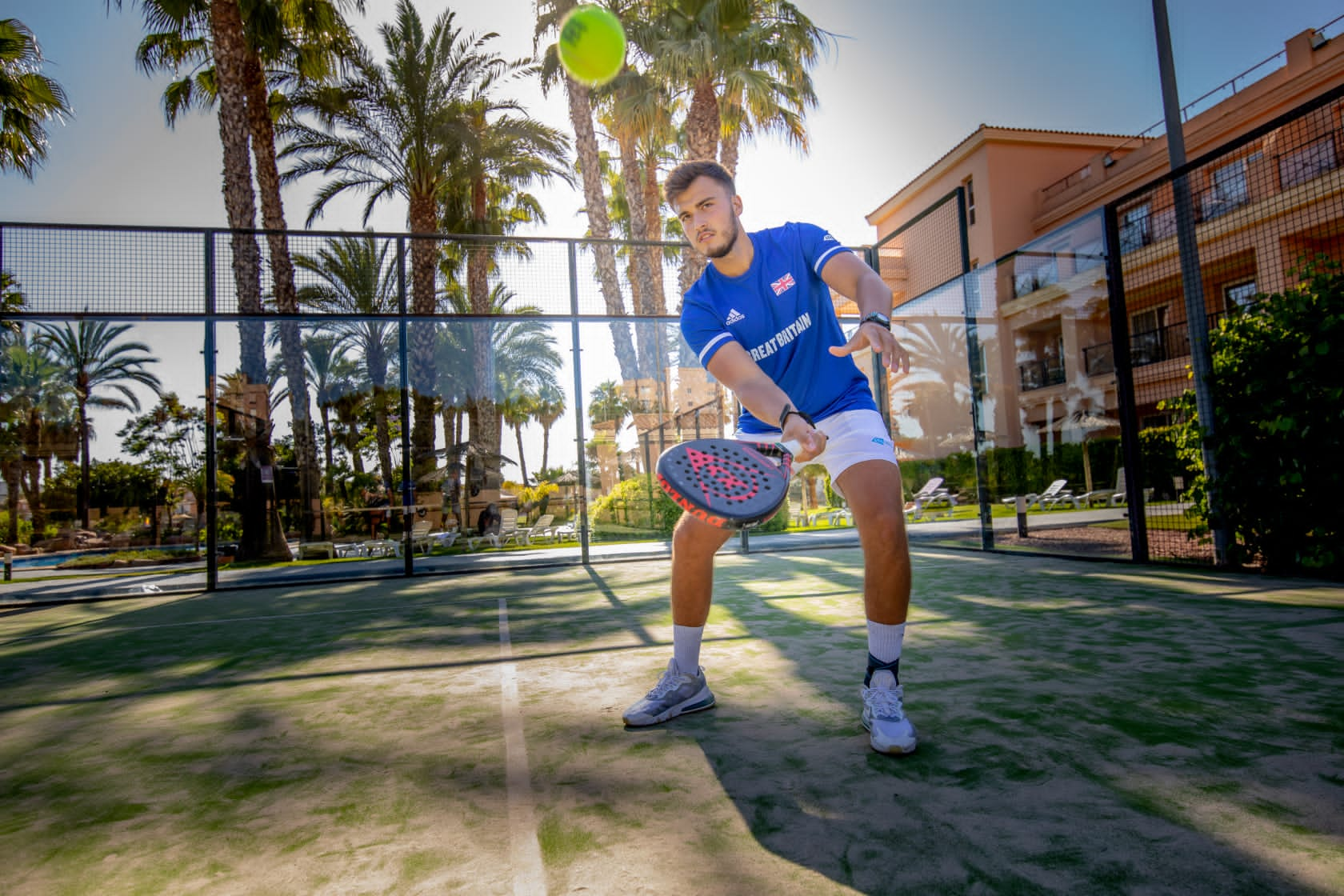
Image Credit: Louie Harris
Image Credit: Louie Harris
"Padel is more relaxed and fun"
"There is a social scene after padel"
"Here in Spain they often organise a paella afterwards or a free drink"
Team GB's padel pros
Christian Medina Murphy
Christian Medina Murphy is the current British number one and is based out in Spain.
He trains in Alicante but is planning to play more tournaments in the UK to try and inspire the next generation of professional players.
Medina Murphy believes the reason why padel has so much potential is that it is a social sport that you can play with your friends and family.
However for the UK to really put themselves on the padel map, a stronger infrastructure for the sport needs be developed.
Medina Murphy said: "Currently around 70 of the top international players are from Spain.
"In the UK, we need time to build around the sport the system of coaching and tournaments to start to get more professional players."
Louie Harris
Louie Harris was out in Dubai for the World Padel Championships and has seen the British team gain momentum.
He said: "Padel is definitely growing. Obviously its still quite a new thing for us but we've been lucky enough to have a team for a while.
"We are still a bit behind other countries but every year the team is getting better and the team is improving.
"We have more resources and everything is just progressing yearly."
Harris has played for Team GB for three years and in that time he has noticed a shift in the demographic of the players.
He said: "The majority of us are either living in Spain or found out about it in Spain but that is where we are seeing the change.
“We are now getting more players in the UK who have always lived in the UK and found out about it in the UK but at the moment the current team, most of us have played abroad.”
Now Have a go at the Quiz!
